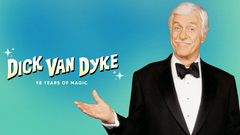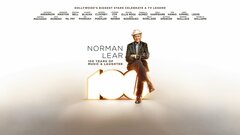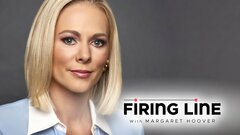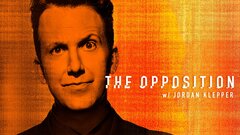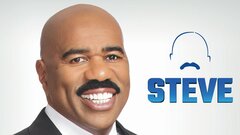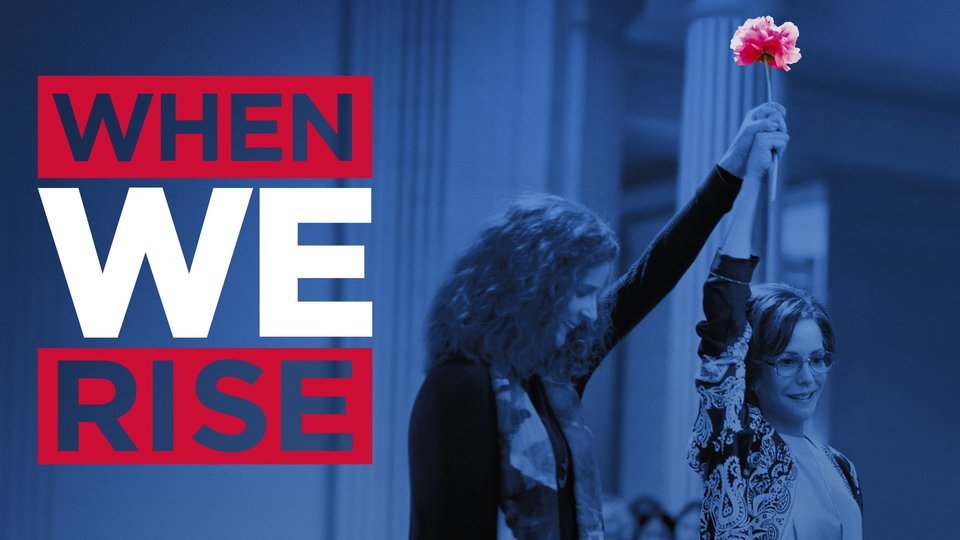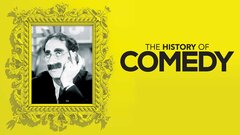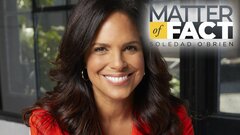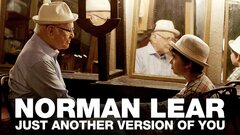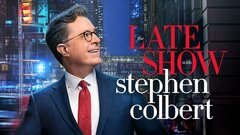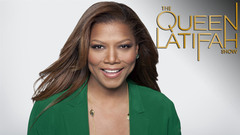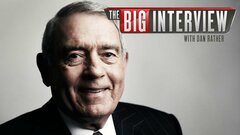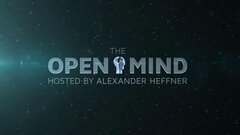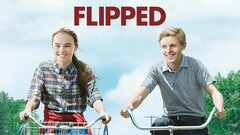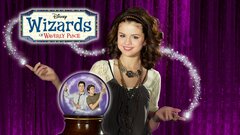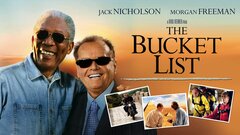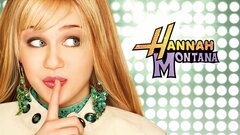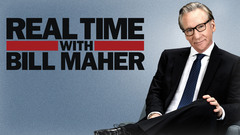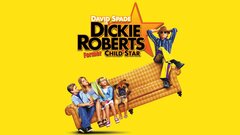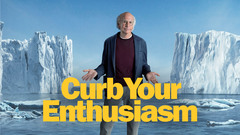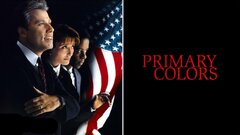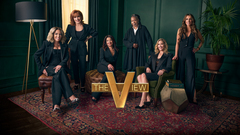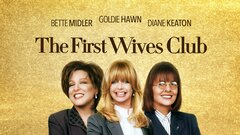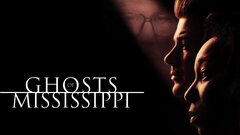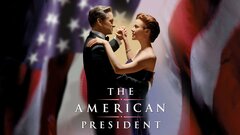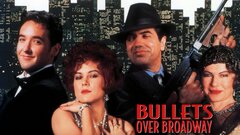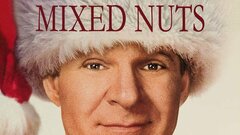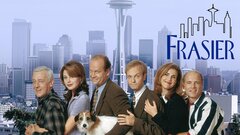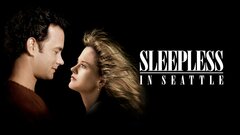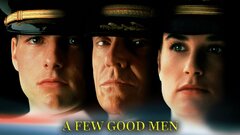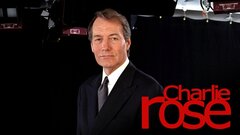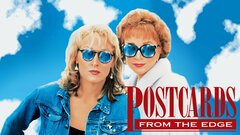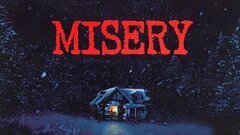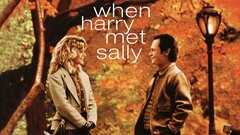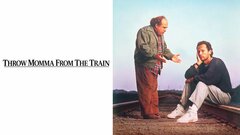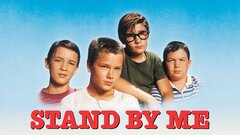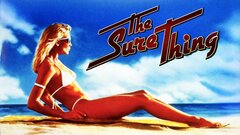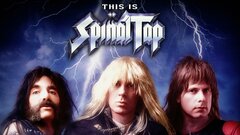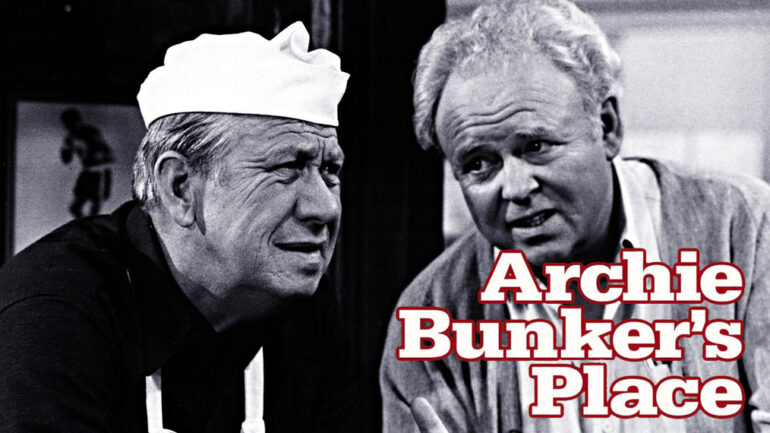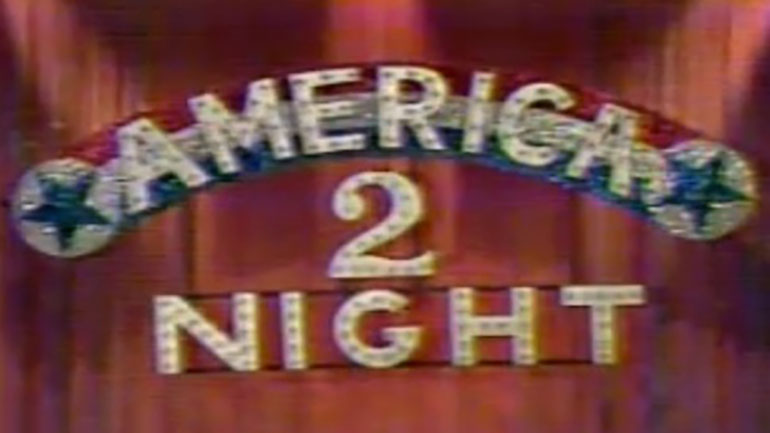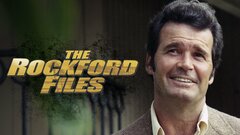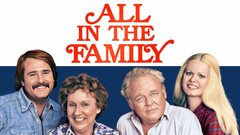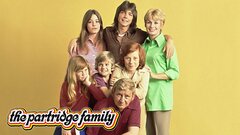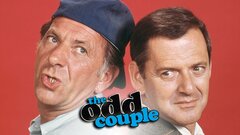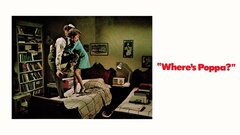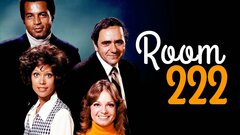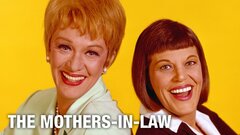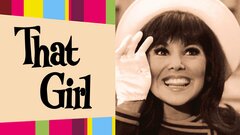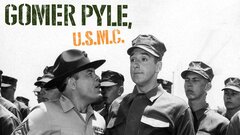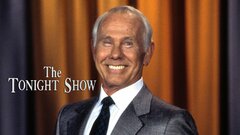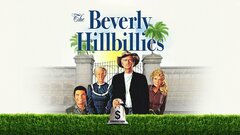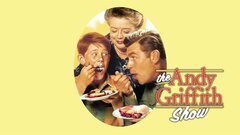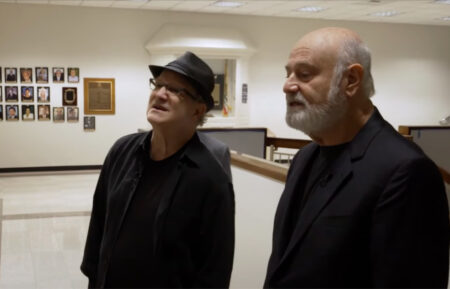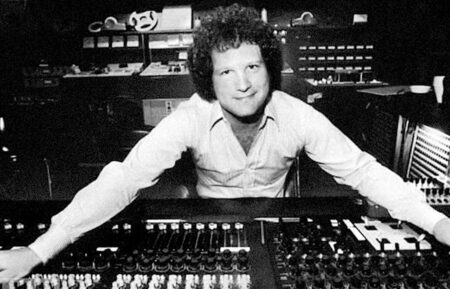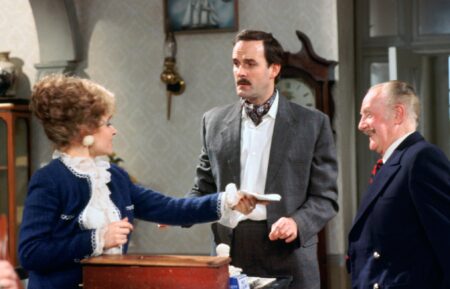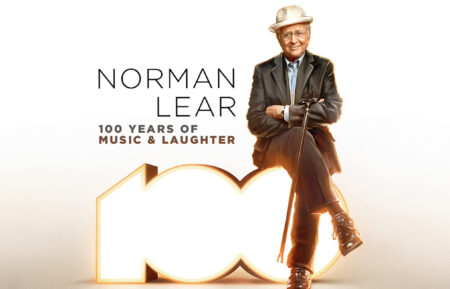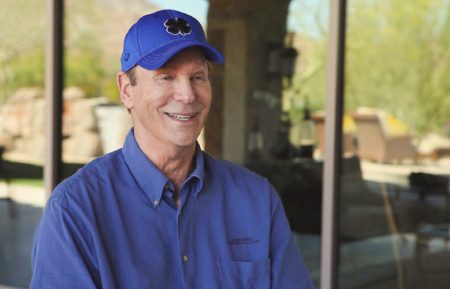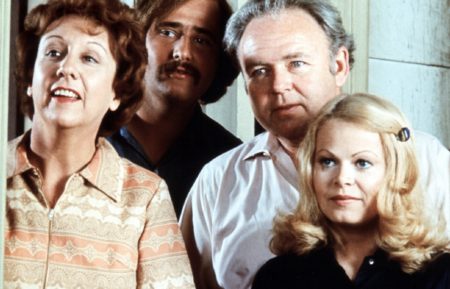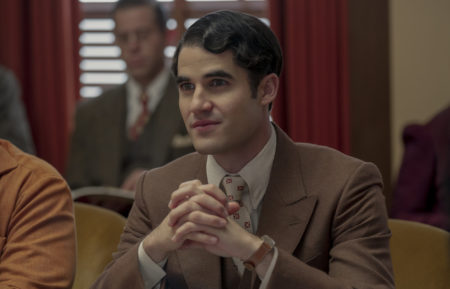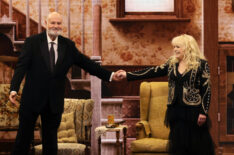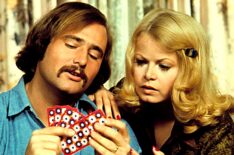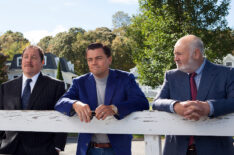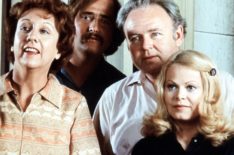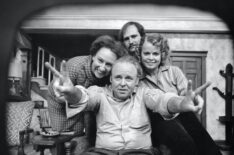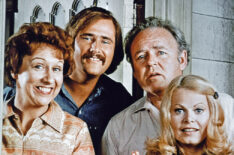Having grown up the son of famed comedian Carl Reiner, actor and director Rob Reiner emerged from his father's considerable shadow to become one of Hollywood's more successful directors, while prior to that, cementing his place in television history with his portrayal of Michael "Meathead" Stivic on the sitcom classic, "All in the Family" (CBS, 1971-79). Though he struggled for a short time trying to launch his own projects after leaving the show, Reiner entered feature directing with "This Is Spinal Tap" (1984), a mockumentary about a fictional British heavy metal band that became a cult classic.
For the next eight years, Reiner went on an amazing directorial run that included "Stand By Me" (1986), "The Princess Bride" (1987) and "When Harry Met Sally " (1989) - all three of which became instant favorites and exemplary of their respective genres. In fact, "When Harry Met Sally " became the high-water mark for all romantic comedies, many of which tried and failed to match its creative success over the years. After turning in more fine efforts with "Misery" (1990) and "A Few Good Men" (1992), Reiner fell into a directing slump with "North" (1994), an abhorrent addition to an otherwise flawless career.
He found his footing with "The American President" (1995), a great combination of romantic comedy and political drama that reaffirmed Reiner's stature as one of the most commercially successful directors working in Hollywood.
Born on March 6, 1947 in The Bronx, NY, Reiner was the son of famed comedian Carl Reiner, who most notably wrote and performed on television during the small screen's Golden Age, including on "Your Show of Shows" (NBC, 1950-54) and "The Dick Van Dyke Show" (CBS, 1961-66). He was also raised by his mother, Estelle, who was an actress and later a cabaret singer. Growing up in a show business household exposed the young Reiner to a world seen by few people, while he was lucky enough to witness the behind-the-scenes camaraderie - and rivalry - of Hollywood's most famous comedians: Sid Caesar, Neil Simon, Larry Gelbart and Mel Brooks.
In fact, Reiner learned what made other people laugh by spending years as a fly on the wall in his family's apartment and summer home on Fire Island, listening to some of the greatest comedians of all time make each other laugh. When he was 13, the family relocated across the country to Beverly Hills, CA, where he attended Beverly Hills High School and befriended the likes of Richard Dreyfuss and Albert Brooks. With his mind and heart set on a comedy career at an early age, Reiner and his group of aspiring friends formed a comedy troupe called The Session, performing sketches that included one called "Let's Watch a Death," which involved the electrocution of a midget.
Following high school, Reiner began to forge his own identity as a comedian, actor and even director. While continuing to perform with The Session, he directed his friend Dreyfuss in a production of Jean-Paul Sartre's "No Exit" at a small playhouse in Beverly Hills. While delving into stand-up comedy, Reiner began to earn notices as a member of the improv comedy group, The Committee, which performed in the late-1960s and provided him the opportunity to hang around the era's musical icons, like Steve Miller and Janis Joplin.
Meanwhile, his father, who had turned to directing, cast him in a small supporting role in his semi-autobiographical showbiz comedy, "Enter Laughing" (1967). He also began making guest appearances on several popular sitcoms, including episodes of "The Andy Griffith Show" (CBS, 1960-68), "Gomer Pyle, U.S.M.C." (CBS, 1964-69) and "The Beverly Hillbillies" (CBS, 1962-1971). Reiner managed to score an episode of the short-lived sitcom "The Mothers-In-Law" (NBC, 1967-69), which was produced by Desi Arnaz. But when he improvised a line during rehearsal, Reiner incurred the unrelenting wrath of Arnaz, who castigated the young actor in front of the cast and crew. Confident that he would land more work, Reiner told Arnaz to find another actor and walked off the set.
Despite upsetting Arnaz, Reiner's career remained on track. In fact, he had his first big break when Tommy Smothers went to see a performance by The Committee in Los Angeles. Impressed by what he saw, Smothers hired Reiner to write for "The Smothers Brothers Comedy Hour" (CBS, 1967-69), a satirical variety show that generated controversy and censorship for its criticism of the political mainstream, namely the Vietnam War. Partnered with another young, up-and-coming comedian, Steve Martin, Reiner had difficulty getting many sketches on the air, though he did lay claim to telling the first flatulence joke ever done on television. After the show was canceled in 1969 despite its popularity, Reiner returned to acting, landing a role in the teen drama "Halls of Anger" (1970) and reuniting with his father, who directed the black comedy "Where's Poppa?" (1970).
Back on the small screen, he landed a guest starring role as a motorcycle hood on the family sitcom "The Partridge Family" (ABC, 1970-74). But all was prelude to what became his career-defining role, playing Michael "Meathead" Stivic, the liberal son-in-law to bigoted conservative Archie Bunker (Carroll O'Connor) on the groundbreaking sitcom, "All In the Family" (CBS, 1971-79).
Created by Norman Lear and based on the British series "Till Death Us Do Part" (BBC1, 1965-1975), "All in the Family" broke the mold for all other sitcoms that followed by pulling no punches in its frank portrayal of racism and use of color metaphors. Though initially under the impression that the show would not last, Reiner was surprised when it became one of the most watched programs of all time. That was when dread set in over the idea of playing the same character for years to come. But he eventually settled into the role of Meathead, whose clashes with Archie over politics, race, feminism and war proved to be both poignant and funny. Nominated five times for an Emmy Award for Outstanding Performance By an Actor in a Supporting Role, Reiner took home statues in 1974 and 1978, his last year on the show.
During his run on the show, he was married to actress Penny Marshall, who unbeknownst to him at the time, grew up in the same Bronx neighborhood. The two had wed in 1971, with Reiner adopting and raising her daughter, Tracy, from a previous marriage. With Reiner a success on "All in the Family," Marshall found her own stardom on "Laverne & Shirley" (ABC, 1976-1983), though their marriage became strained and ended in divorce in 1979.
Part of the reason for Reiner's split with Marshall was his depression over being unable to launch his own television projects. He created, executive produced and starred in "Free Country" (ABC, 1978), a comedy about an immigrant couple (Reiner and Judith Kahan) struggling to make it in America. The series lasted only five episodes. He also wrote and starred in "More Than Friends" (ABC, 1978), a romantic comedy about an uncommitted couple (Reiner and Penny Marshall) struggling over whether or not they should just be friends. The tale was loosely based on Reiner's own courtship of Marshall, which was ironically made on the cusp of their divorce. Having largely turned away from acting, he emerged as a director with his feature debut, "This Is Spinal Tap" (1984), a mock rockumentary that parodied the music business through its depiction of a fictional British heavy metal band touring the United States.
Almost five years in the making, "Spinal Tap" was saved by old friend Norman Lear, who helped finance the project, which featured Michael McKean, Christopher Guest and Harry Shearer as the often clueless members of the band, whose fleeting triumphs and numerous travails - including their inability to keep their drummers alive - are captured by television director Marty DiBergi (Reiner). Though not a box office hit, "Spinal Tap" became a cult classic among movieg rs and was cited by critics as the best of its genre. But many musicians who saw the film found no humor in the situations that they themselves had all-too-painfully experienced.
Switching gears, Reiner directed "The Sure Thing" (1986), a pleasing, moderately successful and ultimately predictable teen romantic comedy about two diametrically opposed college students (John Cusack and Daphne Zuniga) who fall in love while on a road trip to California. Reiner moved on to direct one his best and most poignant films, "Stand By Me" (1986), a coming-of-age drama about four preteen boys (Wil Wheaton, Corey Feldman, Jerry O'Connell and River Ph nix) who go in search of a dead body and along the way, have the adventure of their lives. Based on the Stephen King novella The Body and narrated by Richard Dreyfuss, the film boasted superb, fresh young faces that also included the teenaged Kiefer Sutherland, while offering an affectionate slice of 1950s Americana.
"Stand By Me" was both a critical and box office hit for Reiner. He continued to cement his reputation as one of Hollywood's most reliable, consistently commercial directors with his producing debut, "The Princess Bride" (1987), a quirky fairy tale based on a novel by William Goldman that deftly combined romance, adventure, comedy and even a little satire, while containing an assorted cast of characters - a beautiful princess (Robin Wright), a daring man in black (Cary Elwes), an evil prince (Chris Sarandon), a Spanish sword master (Mandy Patinkin) searching for a man with six fingers, a marble-mouthed Giant (André the Giant), and a scheming criminal genius who is not as smart as he thinks (Wallace Shawn).
An instant classic, "The Princess Bride" was another hit for Reiner and remained one of his most beloved films over the decades. The same year he released "The Princess Bride," Reiner co-founded Castle Rock Entertainment, which was named after the fictional town in which "Stand By Me" was set. After a brief return to acting with the dark comedy "Throw Momma From the Train" (1987), he scored his biggest hit to date as a director with "When Harry Met Sally " (1989), a romantic comedy that set the bar high for all others that followed. Starring Billy Crystal and Meg Ryan as old friends who try to remain just that, even though they grow to love each other over the years. Boasting top notch performances from the leads as well as a great script from writer Nora Ephron, "When Harry Met Sally " redefined the romantic comedy and remained what many considered to be the best example of the modern genre. It also contained one of cinema's most memorable scenes, when Ryan's character fakes an orgasm to prove authenticity to Crystal while the two are having lunch in a Manhattan deli. The scene was capped by the classic punchline, "I'll have what she's having," which was dryly delivered by Reiner's own mother, Estelle, who became one of the most famous extras of all time.
Continuing his commercial success, Reiner returned to adapting Stephen King with his take on the horror master's novel, "Misery" (1990), which starred James Caan as a famous writer taken hostage and held captive by an obsessed fan (Kathy Bates) after surviving a serious car accident. Both campy and compelling, the otherwise standard thriller was elevated by Bates' offbeat, but thoroughly evil performance, which earned her an Academy Award for Best Actress. After more acting roles in "Postcards From the Edge" (1990) and "Regarding Henry" (1991), Reiner directed "A Few Good Men" (1992), his first collaboration with writer Aaron Sorkin. A slick, well-acted, but ultimately predictable courtroom thriller, "A Few Good Men" starred Tom Cruise as Daniel Kaffee, a Navy JAG lawyer called to defend two Marines (James Marshall and Wolfgang Bodison) implicated in a murdering a fellow Marine in a hazing ritual gone wrong. Aided by his defense team (Demi Moore and Kevin Pollack), Kaffee butts heads with the prosecutor (Kevin Bacon) and ultimately the base commander, Colonel Nathan Jessup (Jack Nicholson), who is later forced to admit that he indirectly ordered the hazing. Once again, a Reiner film contained a memorable line - this time shouted by Nicholson while on the stand, declaring that Cruise couldn't "handle the truth!" The quote was voted the 29th greatest American film quote of all time by the American Film Institute."
"A Few Good Men" earned an Academy Awards Best Picture nomination that year; the only Oscar nod of Reiner's career up until that time. After appearing onscreen in "Sleepless in Seattle" (1993) and "Bullets Over Broadway" (1994), Reiner directed his one of his worse films, "North" (1994), an offensive children's fantasy about a young boy (Elijah Wood) who divorces his parents (Julia Louis-Dreyfus and Jason Alexander) and g s on a nationwide search for a new pair with the help of an odd man (Bruce Willis) who appears in random guises, including as the Easter Bunny and a Federal Express driver. The awful movie marked the end of one successful filmmaking streak on Reiner's part. So bad was "North" that film critic, Roger Ebert, declared that he "hated this movie as much as any movie we've ever reviewed in the 19 years we've been doing this show," while cohort Gene Siskel was more succinct when he called the movie "first class junk." Both named "North" the worst film of 1994. Reiner recovered his dignity with "The American President" (1995), a Capraesque romantic comedy scripted by Sorkin about a widowed president (Michael Douglas) smitten by a luminous lobbyist (Annette Bening). A smart script and fine acting from both the leads and a stellar supporting cast (Richard Dreyfuss, Michael J. Fox and Martin Sheen) helped propel the film, which was a smart mix of romance, comedy and political intrigue.
Reiner followed up with "Ghosts of Mississippi" (1996), an historical drama based on the true story of the long-delayed conviction of a Southern racist and Klansman (James Woods) for the murder of civil rights activist Medgar Evers (James Pickens, Jr.). Whoopi Goldberg delivered an excellent portrayal as Evers' widow, while Woods was even better as the wily, aging murderer Brian De La Beckwith, a performance that earned him an Oscar nomination for Best Supporting Actor. Unfortunately, the high-minded movie suffered from Hollywood revisionism and a lack of edge that might have enabled it to be the uplifting hymn to justice to which it had aspired. Though the film was not a financial or critical success, Reiner remained proud that "Ghosts of Mississippi" was used as a teaching tool in classrooms around the nation. Meanwhile, Castle Rock - which enjoyed modest success with Reiner's films - was jointly purchased with New Line Cinema by Turner Broadcasting in 1993 for $650 million, and pointed with pride to the success of "Seinfeld" (NBC, 1989-98), which had emerged from its stable.
As his directorial output slowed during the 1990s, Reiner worked with increasing frequency as an actor. He appeared in small supporting roles in "Mad Dog Time" (1996), "The First Wives Club" (1996) and "Primary Colors" (1998), which he followed with a terrific turn as a villainous network executive in Ron Howard's "EdTV" (1999). Reiner next turned up as himself in Albert Brooks' "The Muse" and then acted for the first time in a picture he directed, portraying Bruce Willis' best friend in "The Story of Us" (1999), a technically proficient romantic comedy that did little to advance the notion that his later directorial efforts had the freshness and unpredictability of his earlier work.
Reiner entered into a lengthy hiatus where he worked tirelessly to promote his political ideals, which included a stint as chairman for First 5 California, an early childhood development service that was funded by taxes levied on tobacco products. He held the post from 1999-2006, when he was prompted to resign amidst controversy for his campaign to promote Prop 82, a ballot initiative to fund state-run preschool, which was seen as a violation of his role as chairman. But an audit conducted after his departure confirmed that the state commission did indeed have authority to conduct a public advertising campaign. Reiner was also considered for a short time to be a contender to challenge Arnold Schwarzenegger for the governor's seat in 2006, but he bowed out of contention, citing personal reasons.
Returning to directing for the first time in four years, Reiner helmed "Alex & Emma" (2003), a romantic comedy which paired Luke Wilson as a blocked writer with a deadline that could prove fatal, starring opposite sassy stenographer Kate Hudson, who helps him finish his novel before gangsters come to collect on his gambling debts. Allegedly based loosely on a true story involving 19th-century Russian novelist, Fyodor Dostoyevsky, the film took a serious critical drubbing, with many suggesting that the director was unable to recreate the light, airy tone of his own earlier romantic comedy efforts.
That same year, Reiner once again stepped in front of the cameras as himself for the lame showbiz comedy "Dickie Roberts: Former Child Star" (2003), starring David Spade. He next directed Jennifer Aniston in "Rumor Has It" (2005), a mawkish romantic comedy with an intriguing premise. Aniston starred as a thirtysomething woman engaged to her boyfriend (Mark Ruffalo) who returns home for the wedding of her sister (Mena Suvari), to learn that her sharp-tongued grandmother (Shirley MacLaine) may have been the real-life inspiration for Mrs. Robinson in the film "The Graduate" (1967). Reiner followed with "The Bucket List" (2007), a comedy starring Jack Nicholson and Morgan Freeman as two terminally ill men who embark on a road trip to fulfill a list of things to do before they kick the bucket. Though the film received mixed critical reviews, it was an undeniable box-office hit, earning more than $175 million worldwide.
In 2010, Reiner helmed the little-seen period romantic drama "Flipped," and two years later he offered up "The Magic of Belle Isle," a thoughtful drama that was also overlooked, despite featuring Freeman in the lead. Also in 2012, Reiner went back to television, playing Bob Day, the father of Zooey Desch


